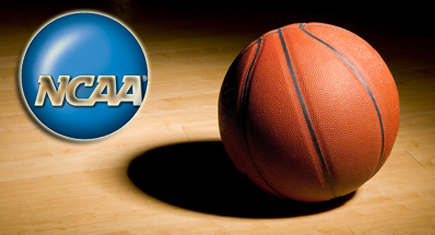-
Tips for becoming a good boxer - November 6, 2020
-
7 expert tips for making your hens night a memorable one - November 6, 2020
-
5 reasons to host your Christmas party on a cruise boat - November 6, 2020
-
What to do when you’re charged with a crime - November 6, 2020
-
Should you get one or multiple dogs? Here’s all you need to know - November 3, 2020
-
A Guide: How to Build Your Very Own Magic Mirror - February 14, 2019
-
Our Top Inspirational Baseball Stars - November 24, 2018
-
Five Tech Tools That Will Help You Turn Your Blog into a Business - November 24, 2018
-
How to Indulge on Vacation without Expanding Your Waist - November 9, 2018
-
5 Strategies for Businesses to Appeal to Today’s Increasingly Mobile-Crazed Customers - November 9, 2018
Court strikes down payment plan; agrees NCAA violates antitrust laws
A federal appeals court has ruled against a plan to pay student-athletes as much as $5,000 annually.
Advertisement
However, the fact that the appeals court upheld Judge Claudia Wilken’s O’Bannon finding that college sports amateurism isn’t legal on its face is a major problem for the NCAA going forward.
The appeals court upheld another alternative, however, that allows member schools to give scholarships to athletes that cover the full costs of college attendance. It does not require more. The group was led by former UCLA basketball star, Ed O’Bannon, and a trial court judge sided with them last August.
The NCAA was accused of violating antitrust laws by conspiring to block the athletes from getting a share of revenue generated by the use of their images.
The O’Bannon case has come to represent a bigger debate about collegiate sports and if its athletes should be paid.
The nature of the O’Bannon decision “does not immunize the amateurism rule from further attack”, said Dan Lazaroff, a professor emeritus at Loyola Law School in Los Angeles.
The $5,000 cap decided by Wilken won’t actually happen, but paying athletes full cost of attendance must be allowed.
Critics say the NCAA’s scholarship policy short-changes athletes who risk injury and devote many hours to practice sessions, travel and competition.
“Although we agree with the Supreme Court and our sister circuits that numerous NCAA’s amateurism rules are likely to be procompetitive, we hold that those rules are not exempt from antitrust scrutiny; rather, they must be analyzed under the Rule of Reason”, states the opinion. Kessler declined to comment Wednesday on the Ninth Circuit’s ruling. The NCAA’s argument maintained that such payments would destroy the concept of amateurism in college sports.
The athletes’ lawyers told the 9th Circuit they are not seeking a “pay-for-play” system, but merely a few compensation for the use of athletes’ images in the media landscape, from video games to March Madness.
“I think you’ll see men’s Olympic sports go away as a result of the new funding challenges that are coming down the pipe”, Bowlsby said past year.
Advertisement
Broadcasters including Walt Disney and CBS have rallied behind the NCAA, arguing in court filings that the idea each participant in a team sporting event has an individual right of publicity, which entitles them to compensation, “is simply wrong”. The preservation of amateur athletics requires that amateurs not be paid. Nothing in this ruling will preclude the NCAA and its member schools from continuing to collude to forbid athletes from signing autographs for money, accepting cash envelopes from boosters or pocketing signing bonuses from athletic departments. They have been especially bothered by seeing replicas of their jerseys sold for more than $100 and seeing themselves in video games while not receiving royalties themselves. However, Wednesday’s ruling was also a setback for the NCAA, since the court ruled that the organization is subject to the nation’s antitrust laws.





























